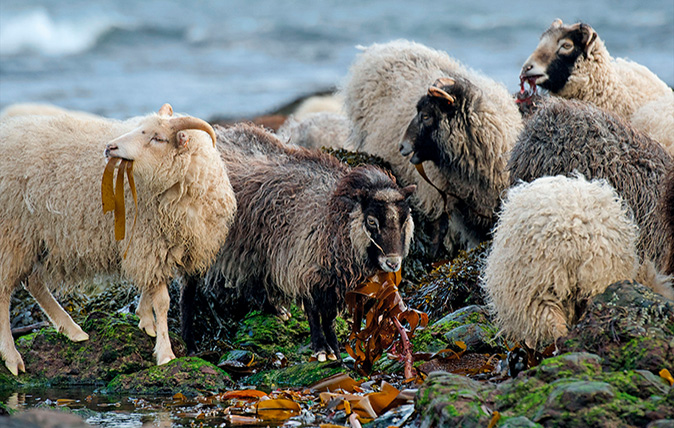Saving seaside Scottish sheep
The future of a rare, seaweed-eating sheep in Orkney looks more secure, thanks to the work of a new charity.


The future of the rare, seaweed-eating sheep that have thrived on the tiny island of North Ronaldsay, the most northerly on Orkney’s archipelago, since Neolithic times looks to be secure thanks to a charity formed a year ago.
The Orkney Sheep Foundation (OSF) aims to protect the North Ronaldsay breed, which is famed for living exclusively on the seashore, except in the lambing season, when the ewes are brought inland.
The animals’ digestion is so accustomed to a diet of kelp that they need to be kept on the shore by a 13-mile dry-stone wall (sheep dyke) built in 1832 that encircles the island, otherwise they risk getting copper poisoning from eating too much grass inland or cross-breeding.
The OSF is currently raising funds to repair three miles of the sheepdyke that have been severely damaged by ferocious storms. To donate, visit www.theorkneysheepfoundation.org.uk
Sign up for the Country Life Newsletter
Exquisite houses, the beauty of Nature, and how to get the most from your life, straight to your inbox.
An experienced journalist, Paula Lester, Country Life's Managing & Features Editor, has worked for the magazine for 10 years — during which time she’s overseen two special issues guest-edited by His Majesty The King in 2013 and in 2018, and the bestselling 2022 edition masterminded by his wife, Queen Camilla. A gamekeeper’s daughter, Paula began her career as a crime reporter on The Sidmouth Herald in Devon, before becoming Pony Club & Young Rider Editor, then Racing Editor, at Horse & Hound. Paula lives in Somerset with her two working Labradors, Nimrod and Rocky.
-
 ‘It had the air of an ex-rental, and that’s putting it politely’: How an antique dealer transformed a run-down Georgian house in Chatham Dockyards
‘It had the air of an ex-rental, and that’s putting it politely’: How an antique dealer transformed a run-down Georgian house in Chatham DockyardsAn antique dealer with an eye for colour has rescued an 18th-century house from years of neglect with the help of the team at Mylands.
By Arabella Youens
-
 A home cinema, tasteful interiors and 65 acres of private parkland hidden in an unassuming lodge in Kent
A home cinema, tasteful interiors and 65 acres of private parkland hidden in an unassuming lodge in KentNorth Lodge near Tonbridge may seem relatively simple, but there is a lot more than what meets the eye.
By James Fisher